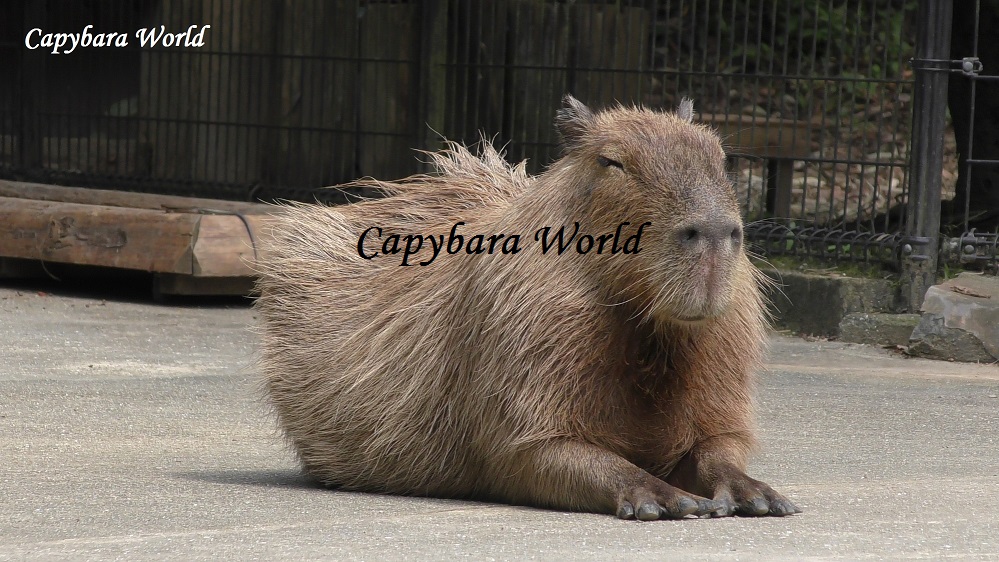Capybaras (often called large guinea pigs) are increasingly gaining popularity as pets globally, with individuals discovering their amiable, sociable, and affectionate nature. For those seeking an unusual yet charming companion, the capybara is an exceptional option. Originating from South America, these outgoing creatures have captured the affection and living spaces of numerous pet enthusiasts worldwide, but how does Utah compare?
Before taking the plunge to adopt any pet, it’s crucial to comprehend the regulations related to capybara ownership. Across the United States, certain states have stringent rules that make possessing a capybara challenging, whereas others may have lenient policies.
This article provides comprehensive details on the legalities and guidelines concerning capybara possession in Utah.
Are Capybaras Allowed as Pets in Utah?
According to state legislation, any creature classified as “exotic” is prohibited as a pet in Utah. Exotic is defined as any animal that is not generally domesticated in the U.S., capybaras included. Consequently, holding a capybara without special authorization from the state is unlawful in Utah.
Occasionally, a person might qualify for a special license to keep an exotic pet in Utah. If so, they must adhere to stringent regulations established by the state, including precautionary measures like an enclosure providing adequate space and stimulation for the animal’s contentment. Breaching these rules can subject one to sanctions, from monetary fines to imprisonment.
It’s noteworthy that specific details addressing capybaras in the state are scarce, though most resources categorize them under the exotic animal tag. Thus, law enforcement finding a capybara in possession could potentially have grounds to prosecute.

Do Capybaras Reside in Utah Zoos?
Since animals in zoos aren’t treated as pets, their governing laws differ from those for household capybaras. Unlike private ownership, Utah zoos can include capybaras in their exhibits.
The zoo must secure a special authorization from the state to harbor exotic creatures, meeting all necessary safety conditions for the animal’s welfare and proving its origin.
Additionally, Utah zoos must abide by all federal statutes relevant to exotic species, such as obtaining required documentation from the U.S. Fish and Wildlife Service prior to exhibiting a capybara.
Moreover, the zoo is mandated to implement reasonable precautions to avert the animals’ escape into the wild. This includes constructing secure dwellings and barriers and adopting suitable safety practices if an escape occurs.
Where in Utah Can You See Capybaras?
Although possessing one as a pet might be prohibited, encountering capybaras up close remains an option in Utah. The Utah Petting Zoo in Grantsville hosts a variety of farm animals and native species as well as several capybaras.
While it’s not as gratifying as personally owning one of these affectionate creatures, visitors to the petting zoo can still observe them closely and discover their distinct manners and routines. Guests can engage in feeding and assisting in caretaking of capybaras while acquainting themselves with other international wildlife.

What are the Alternatives to Keeping a Capybara in Utah?
Despite the prohibitions on private capybara ownership in Utah, there remain numerous comparable animals and foreign species legally permissible within the state. These involve guinea pigs, rabbits, chinchillas, and other diminutive rodents.
Many of these substitutes are sociable creatures with enclosure and care demands similar to a capybara, making them delightful and fulfilling pets for Utahans. Moreover, some of these substitutes might be easier to acquire than a capybara due to less rigorous control over private possession.
For example, many small rodents can be found in pet stores or through online sellers, whereas capybaras might need to be sourced from a specific breeder. For individuals keen on an exotic pet but unable to legally obtain a capybara in Utah, there still exist interesting and one-of-a-kind alternatives.
In Conclusion
Having a capybara as a pet in Utah is regrettably not permissible due to its exotic classification. Nonetheless, for those drawn to these distinct and social creatures, legal alternatives exist, including visiting the Utah Petting Zoo or similar establishments. Additionally, numerous domestic varieties like native reptiles, small rodents, and other fauna that might be more accessible and subject to fewer regulations could also be considered for pet ownership in the region.



